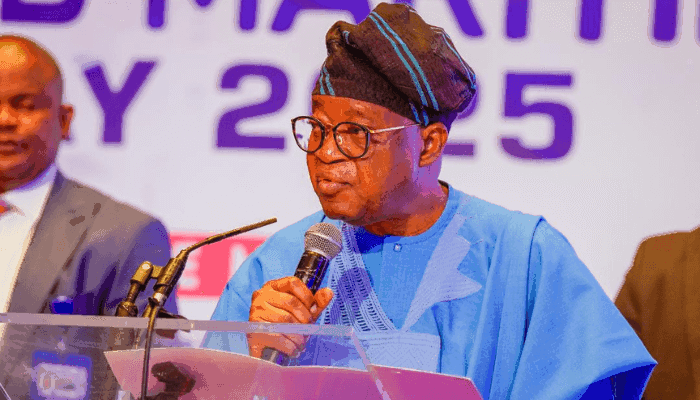927
By Daniel Adaji
The Federal Government is taking steps to close its widening fish supply gap and boost aquaculture production.
This was revealed at the opening of a two-day Roundtable Discussion on Accelerating National Fish Production held in Lagos on Wednesday, where the Federal Ministry of Marine and Blue Economy entered into a partnership with the National Institute for Policy and Strategic Studies (NIPSS) to develop a national roadmap for fish production.
The Minister of Marine and Blue Economy, Dr. Adegboyega Oyetola, said the collaboration marks a critical move toward implementing President Bola Tinubu’s Renewed Hope Agenda, which prioritises food security, job creation, and economic diversification.
“Current output meets only about 38.9 per cent of the 3.6 million metric tonnes of fish required annually. This leaves a deficit of over 2.2 million metric tonnes, forcing Nigeria to rely heavily on imports. This trend is unsustainable economically, nutritionally, and environmentally,” Oyetola said.
According to the United Nations Food and Agriculture Organisation (FAO), Nigeria is one of Africa’s largest consumers of fish, with demand projected to rise beyond 4 million metric tonnes annually by 2030 due to population growth and changing dietary preferences. Despite its vast inland waters and coastal resources, local production continues to fall short, creating dependency on imports that cost the country billions in foreign exchange each year.
The Minister explained that the Lagos round table aims to produce a National Fish Production Acceleration Roadmap to guide strategic investments and reforms in the fisheries and aquaculture subsector.
He disclosed that new policy and legal frameworks — including the Fisheries Bill and the National Fisheries and Aquaculture Policy — are being developed to improve governance, strengthen sustainability, and attract private investment.
Oyetola revealed that the Ministry has embarked on several digital reforms, including the automation of fisheries operations and the creation of a Blue Data Bank in collaboration with the World Bank’s PROBLUE Programme.
He added that youth and women are being empowered through the Green Money Project, which provides training and input support for small-scale aquaculture ventures.
Speaking on the partnership, Professor Ayo Omotayo, Director-General of NIPSS, said the Institute remains committed to promoting evidence-based policies that can drive fish self-sufficiency. “NIPSS would continue to work with the ministry to translate the outcomes of the round table into actionable strategies,” he said.



